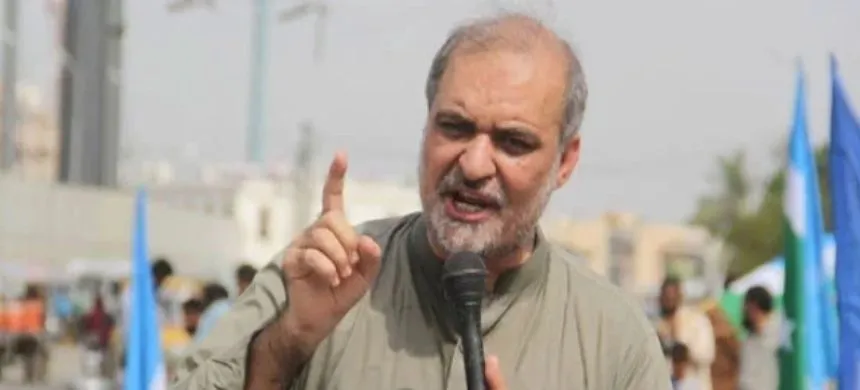As the Jamaat-e-Islami (JI) sit-in at Liaquat Bagh in Rawalpindi reaches its seventh day, party leader Hafiz Naeemur Rehman reiterated on Thursday that the protest will persist until their demands are met. Addressing the crowd, Rehman emphasized that the solution for the rulers is simple: accept JI’s demands. He urged the nation to oppose what he described as the ‘terrorist’ influences of America and Israel, along with their proxies in Islamic countries.
Rehman criticized the current administration for being influenced by foreign powers and disconnected from the needs of the Pakistani people. He stressed that the sit-in, which is protesting against high electricity costs and rampant inflation, will continue until there is a clear commitment from the government. “The straightforward path for the rulers is to meet our demands; otherwise, we will reveal our next course of action in two days,” he warned.
He called for transparency in negotiations, suggesting that discussions be conducted publicly to ensure accountability. Rehman commended the people’s resilience and support, asserting that the sit-in has already made a notable impact. “This sit-in has become historic, and your support has made it a success,” Rehman declared.
Read more: The first round of talks, the government has agreed to release all detained JI workers
He criticized the government’s economic policies, highlighting the hardships faced by citizens due to high electricity bills, unemployment, and factory closures. Rehman accused a select few in the government of perpetuating corruption and depleting national resources, claiming they shield each other’s wrongdoing and are responsible for the deterioration of institutions.
Rehman also targeted the extravagant spending of bureaucrats, politicians, and military officials, calling for an end to their privileges. He criticized the use of government resources for luxuries and demanded that no official use vehicles exceeding 1300 cc. “What is stopping this, Shahbaz Sharif?” he questioned. On international issues, Rehman condemned the government’s handling of the Pakistan-Iran gas pipeline and its adherence to American demands, which he argued harm Pakistan’s interests. He also denounced the lack of action against Israel and the United States, accusing them of perpetuating terrorism against Muslims worldwide.
Rehman concluded his speech with a call to action, urging Pakistanis to mobilize across Islamabad, Rawalpindi, Sindh, and Karachi. “We have decided not to engage in political games; we made a wise decision, and now we must challenge all political parties,” he asserted. He warned that if the government continued to delay addressing their demands, the sit-in would be extended, and a new movement would be initiated.











